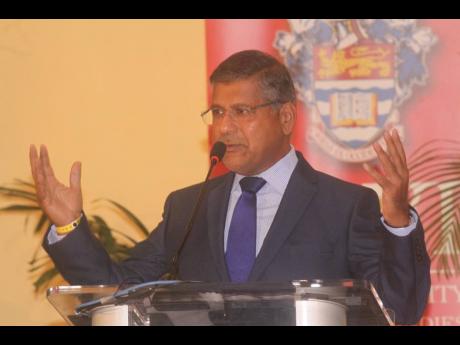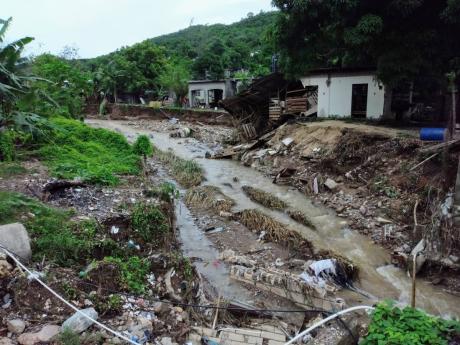Ahmad: Don’t blame the poor for shanty towns
WESTERN BUREAU:
British High Commissioner Asif Ahmad has said that the poor should not be blamed for the plethora of shanty towns and informal settlements across the island as it is the rich, who, in creating towns and cities with high-rise buildings and insufficient housing, have left them out of the equation.
According to Ahmad, as cities grow, wealthy people in Jamaica and around the world move to erect houses, office buildings, and towers, displacing the poor in the process, forcing them to look elsewhere to create homes, which often results in informal settlements.
“It’s the rich that actually caused the development of shanty towns, not the poor, so don’t blame them,” he said while addressing Wednesday’s opening ceremony of the three-day University of the West Indies Caribbean Sustainable Cities Conference.
“The first thing that they do is to displace the poor,” Ahmad told the audience, which included urban and town planners.
He stressed that the absence of low-cost housing has been forcing the poor to find their own forms of accommodation, thereby giving rise to the development of shanty towns and informal settlements.
“In the rush to build even more gated communities and iconic office buildings, we shut out the people we need to build housing for,” stated Ahmad, who warned that in the not-too-distant future, the poor will begin to resist being displaced further.
“There may come a day where such people, rural people, and the poor will say, ‘Enough!’ They are not prepared to sacrifice their quality of their life so that we can have a better life as city dwellers,” noted Ahmad.
Ahmad’s observation mirrors the situation that gave rise to the many unplanned developments in places like Montego Bay, which has about 19 squatter communities. The absence of adequate housing to facilitate persons moving into the Second City to seek jobs in the tourism sector largely fuelled a move to capture unoccupied lands to create informal communities.
The issue of informal settlements has resurfaced after heavy rains caused flooding and billions of dollars in damage to infrastructure and property across the island.
Residents of a section of Nine Miles in Bull Bay, St Andrew, were also urged to evacuate as a river overflowed its banks.
Prime Minister Andrew Holness said the Government will be looking into declaring areas prone to severe flooding and landslides as no-build zones.
“There are… some communities that shouldn’t be where they are…. There are some areas which we will have to declare as no-build zones,” he said in Parliament on October 27.
“In the face of these significant weather events, houses perched on hillsides that have been denuded, we know those houses are going to be at risk …. We know we are going to have landslides. Houses built on marginal lands such as gully banks, we know that when there is significant rain …, these houses are going to be flooded out. At some point, as a society, we must come to the understanding that you cannot choose to go and live anywhere you feel,” the prime minister said.


